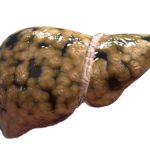By Bonnie Jenkins
It seems like I can’t go to the grocery store without seeing yet another gluten-free baking mix or gluten-free package of cookies or crackers. It’s the new buzz word in the world of packaged food. But should you bite?
If you suffer from celiac disease or cannot tolerate gluten, then the answer is a definite “yes!” Once considered an obscure malady, celiac disease now affects one out of every 133 Americans. Celiac disease is a genetic autoimmune disorder, meaning the immune system treats gluten—the elastic protein in wheat, spelt, barley and rye—as a toxin. Celiac disease is four times more common today than it was 50 years ago, according to research performed at the Mayo Clinic. For every person with celiac, experts believe there may be many more who have non-celiac gluten intolerance.
Celiac, which is considered overt gluten sensitivity, has many faces. The most well-known involves gastrointestinal distress—usually diarrhea, but occasionally constipation; oral or gastric ulcers; a shiny, raw-feeling tongue; nausea after eating; and even vomiting. General symptoms can include malaise, weakness, unexplained weight loss, restless leg syndrome and blunting of the fingertips. The skin can become itchy or develop lots of tiny capillary breaks and herpes-like blisters may occur, often in the mouth. Because these symptoms aren’t specific, it can be hard to pinpoint celiac. It’s even harder to spot a milder case of gluten intolerance.
Despite the misery this myriad of symptoms can cause, a more alarming consequence of gluten intolerance is the frequency of vitamin and mineral deficiencies common in people with celiac disease. Here’s what happens: part of the gluten molecule (gliadin) causes the immune system to destroy the absorptive surface of the small intestine, normally covered in a lush “brush border.” These myriad tiny finger-like projections become abraded and flattened, thus greatly reducing the surface area for nutrient absorption. This is reversible once the offending substances are removed.
The most serious is a deficiency in the B vitamins, a lack of which can lower a person’s ability to handle stress, as well as cause tingling and numbness in the extremities. The fat-soluble vitamins A, D, E and K can also be in short supply. What’s more, bone density can be reduced because celiac disease causes calcium malabsorption. Untreated, celiac can lead to osteoporosis, profound anemia and seizures.
The World's Quickest Solution for Ending Prostate and Urinary Misery
This has recently been revealed to be one of the only real breakthroughs in prostate health.
The seeds of a strange fruit (sometimes called "Chinese Apples") hold powerful phytonutrients that are a revolution in prostate health.
In fact, UCLA and Veterans Administration research have now proved this to be true.
Not only that, but it may be the worlds quickest solution for ending prostate misery.
Simply stated, these phytonutrients represent a huge step beyond beta sitosterol, saw palmetto, and other phytosterols alone.
Simply click HERE if you want to have fast prostate relief...restful, uninterrupted sleep...no more constant "urges to go"...enhanced virility...and optimal prostate support for life.
If you’ve been diagnosed with celiac—or even if you simply suspect that your body can’t handle gluten—avoiding all gluten is key. Since that’s the hot new trend among food manufacturers, that’s easier to do than it was in the past. Steer clear of any food that contains wheat, spelt, kamut, triticale, barley, millet, amaranth, couscous, semolina, durum and rye. You should also avoid oats. Oats don’t contain gluten, but are often contaminated with gluten in the field or during storage or processing. If you are sensitive, even trace contamination can cause symptoms to come roaring back.
And since nutrients aren’t readily absorbed, research shows that it’s smart to augment the vitamins and minerals you get from food with a comprehensive liquid multivitamin-multimineral complex. Liquid multivitamins offer exceptional absorption and are abundant in the nutrients people with celiac need to fend off deficiency. Look for a product that offers high levels of the B vitamins, as well as omega-3 fatty acids and antioxidants from a variety of sources. Just make sure to check the label to ensure that your multi is gluten-free.
References:
da Silva Neves MM. Celiac disease diagnosis and gluten-free food analytical control. Analytical and Bioanalytical Chemistry. 2010 May 6. [Epub ahead of print]
Malterre T. Digestive and nutritional considerations in celiac disease: could supplementation help? Alternative Medicine Review. 2009;14:247-257.
Tikkakoski S. Undiagnosed coeliac disease and nutritional deficiencies in adults screened in primary health care. Scandinavian Journal of Gastroenterology. 2007;42:60-65.





